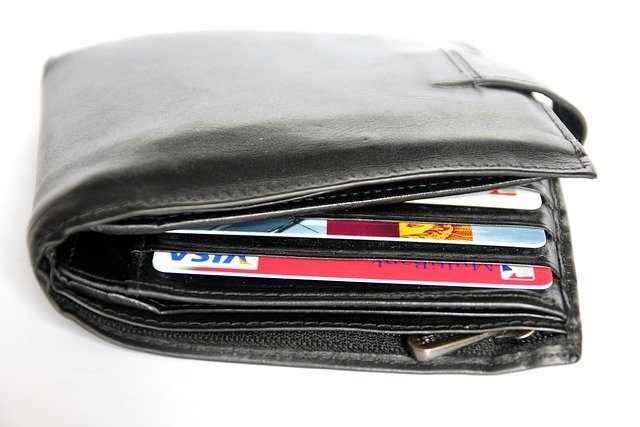Navigating Credit Card Applications for Residents of Austria
Residents of Austria can benefit from a thorough understanding of the credit card application process. Familiarity with what lenders evaluate during the application can significantly increase the chances of approval. Additionally, recognizing common reasons for rejection can help applicants address potential issues and improve their financial profiles before applying.

Credit cards have become essential financial tools for many residents in Austria, offering convenience, security, and sometimes valuable rewards programs. However, the application process can be complex, with Austrian banks and financial institutions maintaining strict criteria to determine eligibility. Understanding these requirements and the factors that influence approval decisions is crucial for successful applications. This article provides a thorough overview of the credit card application landscape in Austria, highlighting important considerations for both Austrian nationals and foreign residents.
Understanding Credit Card Applications in Austria
The credit card application process in Austria follows a structured approach that differs somewhat from other European countries. Most Austrian banks require applicants to have a primary bank account with their institution before applying for a credit card. This requirement stems from the Austrian banking system’s preference for established banking relationships, which helps institutions assess financial reliability. Applications typically require proof of identity (passport or national ID), proof of address (registration certificate or Meldezettel), proof of income (salary statements for at least three months), and sometimes a tax assessment notice (Steuerbescheid).
Foreign residents face additional requirements, including residence permits valid for at least one year and sometimes proof of employment stability. The application process usually takes between one to three weeks, during which the bank conducts thorough background checks and credit assessments. Many Austrian banks also offer online application options, though in-person verification may still be required before final approval.
Factors Influencing Lender Decisions for Credit Cards
Austrian credit card issuers evaluate several key factors when reviewing applications. Income stability ranks among the most important criteria, with most institutions requiring regular monthly income above a certain threshold, typically around €1,000 to €1,500 per month depending on the card type. Employment history also plays a crucial role, with lenders preferring applicants who have maintained steady employment for at least six months to one year.
Credit history in Austria is another significant factor, tracked through the KSV (Kreditschutzverband) system. Unlike some countries, Austria doesn’t use a numerical credit score but maintains records of payment behavior and outstanding debts. Any history of payment defaults, bankruptcies, or legal proceedings related to debt can severely impact approval chances. Additionally, existing debt obligations are carefully scrutinized, with lenders calculating debt-to-income ratios to ensure applicants aren’t overextended financially.
The length of residence in Austria also influences decisions, with many institutions requiring at least six months of residency. Some premium credit cards may have higher standards, requiring longer residency periods and higher income thresholds.
Common Reasons for Rejection of Credit Card Applications
Applications are frequently rejected due to insufficient income documentation or unstable employment history. Austrian banks typically prefer applicants with permanent employment contracts over those with temporary positions or freelance work. Inconsistent banking behavior, such as frequent overdrafts or irregular deposits, can also lead to rejection as it suggests financial instability.
Poor credit history is another common reason for denial. Even minor payment delays reported to the KSV can affect an application, as Austrian financial institutions are generally conservative in their risk assessment. Incomplete or incorrect application information represents another frequent cause for rejection. Simple errors like mismatched address information or missing documentation can result in automatic denials.
For foreign residents, insufficient residency duration or documentation often leads to rejection. Most Austrian credit card issuers require at least six months of residence in the country, along with proper registration and residence permits. Some applicants also face rejection due to having too many recent credit inquiries, as multiple applications in a short timeframe can signal financial distress.
Types of Credit Cards Available to Austrian Residents
Austrian financial institutions offer various credit card options tailored to different needs and financial situations. Standard credit cards typically have lower income requirements (around €1,000 monthly) and annual fees between €20-€40, making them accessible to most employed residents. Gold or premium cards offer higher credit limits and additional benefits but require higher income thresholds (typically €2,500+ monthly) and charge annual fees ranging from €50-€120.
Prepaid credit cards provide an alternative for those with limited credit history or lower incomes, as they require loading money before use and therefore carry no credit risk. These cards typically have minimal application requirements but may have higher transaction fees. Co-branded cards partnered with retailers or airlines are also popular, offering specific rewards like shopping discounts or travel miles.
Credit Card Application Process for Non-Austrian Citizens
Foreign residents face additional considerations when applying for credit cards in Austria. Most institutions require a valid residence permit (Aufenthaltstitel) with at least one year of remaining validity. Proof of local employment or income is essential, with some banks requiring employment contracts of at least six months’ duration. Documentation needs are more extensive, often including translated versions of foreign documents and proof of previous banking relationships.
Language barriers can present challenges during the application process, though many larger banks offer services in English. Some institutions may also require higher security deposits or lower initial credit limits for non-citizens without established Austrian credit histories. EU citizens generally face fewer restrictions than third-country nationals, benefiting from EU financial passporting regulations.
Comparing Credit Card Offers from Major Austrian Banks
| Bank | Card Type | Annual Fee | Interest Rate | Notable Features |
|---|---|---|---|---|
| Erste Bank | Erste Card Classic | €22.80 | 14-16% | Mobile banking app, contactless payments |
| Bank Austria | MasterCard Standard | €26.40 | 13-15% | Travel insurance, online shopping protection |
| Raiffeisen | VISA Classic | €24.00 | 14-17% | Flexible payment options, worldwide acceptance |
| BAWAG P.S.K. | Gold MasterCard | €64.90 | 12-14% | Premium travel insurance, concierge service |
| N26 | N26 Standard | €0 | N/A (debit) | Mobile-first banking, free ATM withdrawals |
| DKB | VISA Card | €0 | 7-11% | Free worldwide withdrawals, no foreign transaction fees |
Prices, rates, or cost estimates mentioned in this article are based on the latest available information but may change over time. Independent research is advised before making financial decisions.
Understanding the Austrian credit card landscape requires attention to detail and preparation. The application process, while thorough, becomes more navigable when applicants are fully informed about requirements and expectations. Austrian financial institutions prioritize financial stability and documentation, reflecting the country’s conservative approach to consumer credit. By preparing proper documentation, maintaining good banking relationships, and selecting appropriate card products based on individual circumstances, residents of Austria can improve their chances of successful credit card applications.
For those new to Austria or with limited credit history, starting with a basic card or prepaid option often provides a pathway to establishing credibility within the Austrian financial system. As with any financial decision, comparing offers from multiple providers ensures finding the most suitable terms and benefits for individual needs and circumstances.




